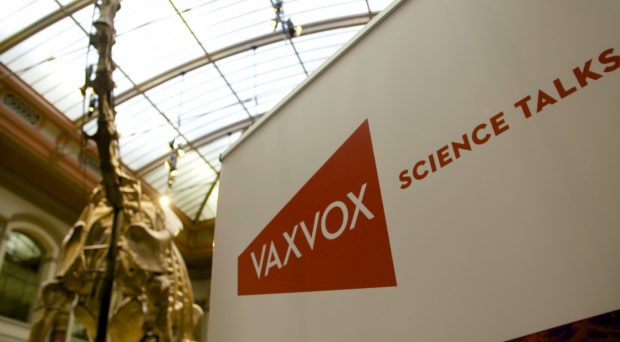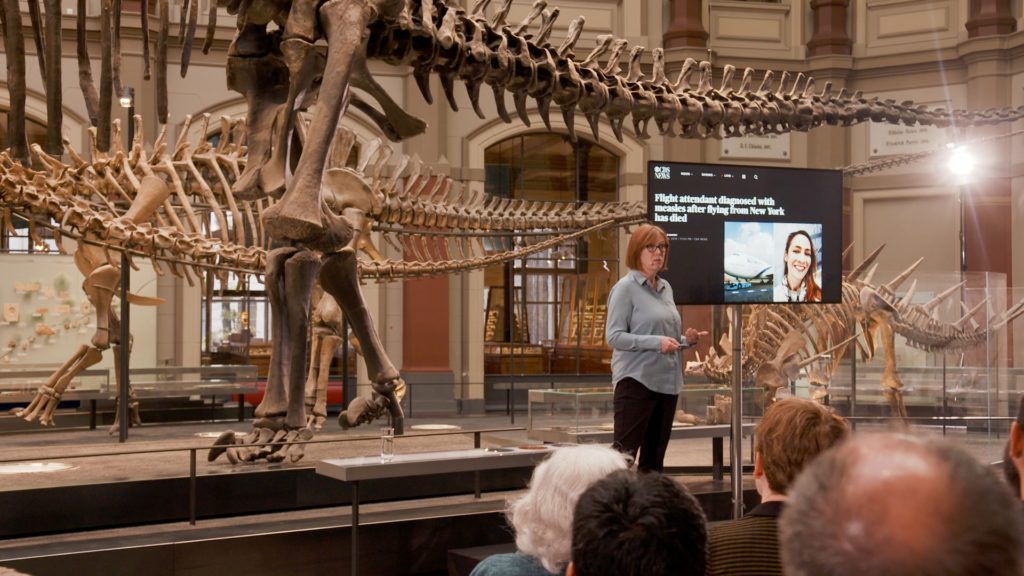
On 30 September 2019, the One Health Platform organized a one-day meeting at the Natural History Museum in Berlin, Germany, which served as the formal launch of VAXVOX – Science talks. VAXVOX is a reference network of spokespersons on science-related vaccine issues and thus unites vaccination advocates globally. Its aim is to communicate pro-actively and serve as a point of contact for people outside the scientific community. The launch meeting was attended by different vaccination advocates worldwide. In this Q&A, we interviewed Pierre Van Damme, Full Professor in Vaccinology at the University of Antwerp, Belgium, and one of the speakers at the event.
What is the Vaxvox format planning to achieve?
We want to strengthen ties with vaccination advocates worldwide. And have the researchers be more vocal. Most of the vaccinology researchers do their job, work in the lab, manage their projects, teach to students, but are overall quite silent towards media and general public. This needs to change, in particular because we have the moral duty to communicate what we do to the public and media. We have to make clear what we know and what still needs to be discovered.
Vaxvox is therefore a reference network of spokespersons on vaccine-related science. This is very timely, as we have to fill the information gap on vaccines, what vaccination programs have achieved, and their life-saving potential.
Many people have forgotten that or have never heard about it (in particular the younger generation). So we have to tell them where we come from and what is possible, thanks to vaccination programs. We need to make these achievements visible, and therefore Vaxvox needs to be visible and make the stories more known.
What is the target audience?
Worldwide, the general public, the media and colleagues, but also the future generation of health care providers, in the large sense: future doctors, pharmacists, nurses, midwives, and so on.
The stories we told will go viral through the web and connection with other websites, and social media.

What impression did you have about the meeting and the outcomes?
The concept of storytelling works, it is very captivating. Storytelling allows translating hard science into public health, and more fundamental research into daily practice. It requires an effort from each scientist to become a storyteller, but there is an added value in this effort and it is worth it – the story is evidence-based and will circulate.
This first step in Berlin has built the platform for future activities and created an important communication network that didn’t exist. As a form of science communication, it starts to become very popular among younger researchers, and now older scientists need to understand how important story telling is in science communication.
What are the best highlights of the meeting?
In fact, we have safe and immunogenic vaccines, and if we used them in a more efficient way, we would control, eliminate and even eradicate more vaccine-preventable diseases. That is the bottom line of the meeting. So, we can do better in implementing our programs and be more vocal to raise the awareness and inform people. This effort will now have a platform and we need a multiplier effect with connection to their networks and platforms.
What are the plans for the future?
Connect with other networks of vaccine advocates and organisations, have a worldwide reach through the website and these networks, distribute the recorded material as broadly as possible and plan a follow up meeting on June 14, 2020, at the 6th World Congress on One Health in Edinburgh.
The One Health Platform is a One Health Scientific Reference Network that aims to enhance understanding of and preparedness for current and future outbreaks of zoonoses, emerging and re-emerging infectious diseases in humans and animals and antimicrobial resistance. This includes the ecological and environmental factors which drive and impact on these diseases. The new journal One Health Outlook is published by BMC in collaboration with the One Health Platform.
Comments